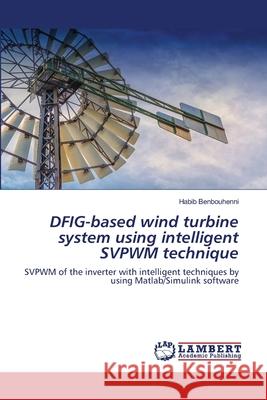DFIG-based wind turbine system using intelligent SVPWM technique » książka
DFIG-based wind turbine system using intelligent SVPWM technique
ISBN-13: 9786202918213 / Angielski / Miękka / 2020 / 268 str.
In spite of its several advantages, the traditional field oriented control (FOC) method of doubly-fed induction generators (DFIGs) driven by variable speed wind turbines has some drawbacks. In this work, a simple and intelligent modulation techniques (neural pulse width modulation, fuzzy pulse width modulation, fuzzy space vector pulse width modulation, and neural space vector pulse width modulation) is proposed to control the converter to reduce active/reactive power ripple and total harmonic distortion (THD) of stator/rotor current. The validity of the proposed control techniques applied to the DFIG using intelligent modulation techniques is verified by Matlab/Simulink software. The stator reactive power, electromagnetic torque, rotor current, and stator active power are determined and compared with the conventional strategy. Simulation results presented in this book show that the proposed techniques reduce the THD value, electromagnetic torque ripples, and active/reactive power ripple compared to a traditional strategy under various operating conditions.











